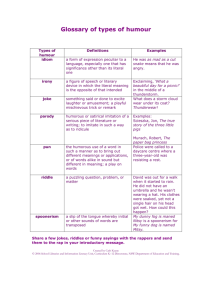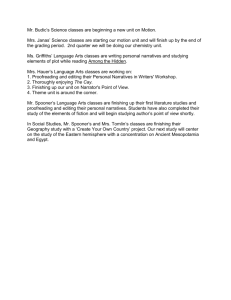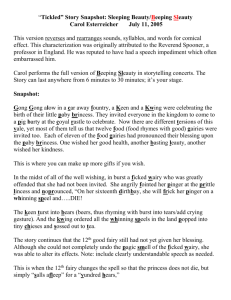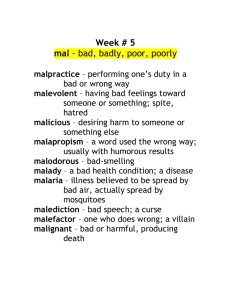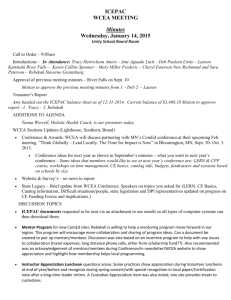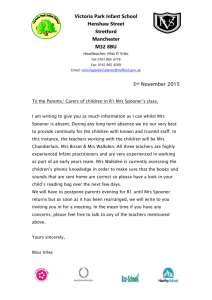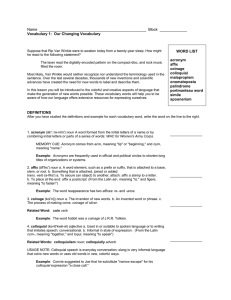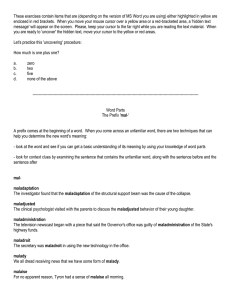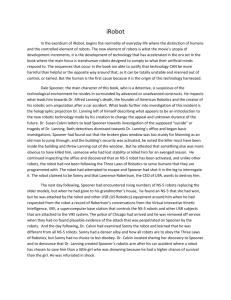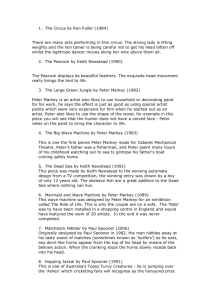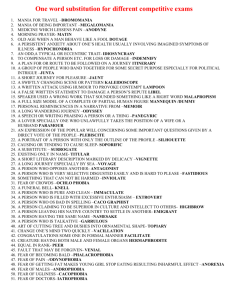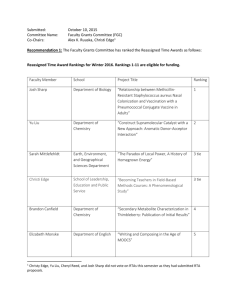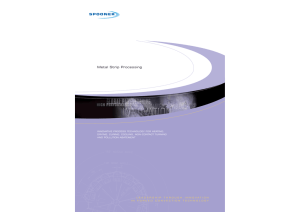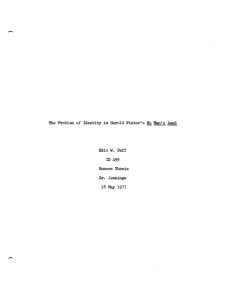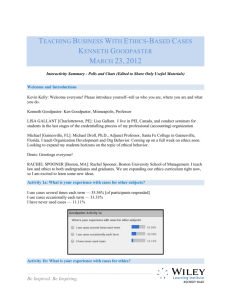Entertaining Speech: Spoonerisms, Goldwynisms, and
advertisement
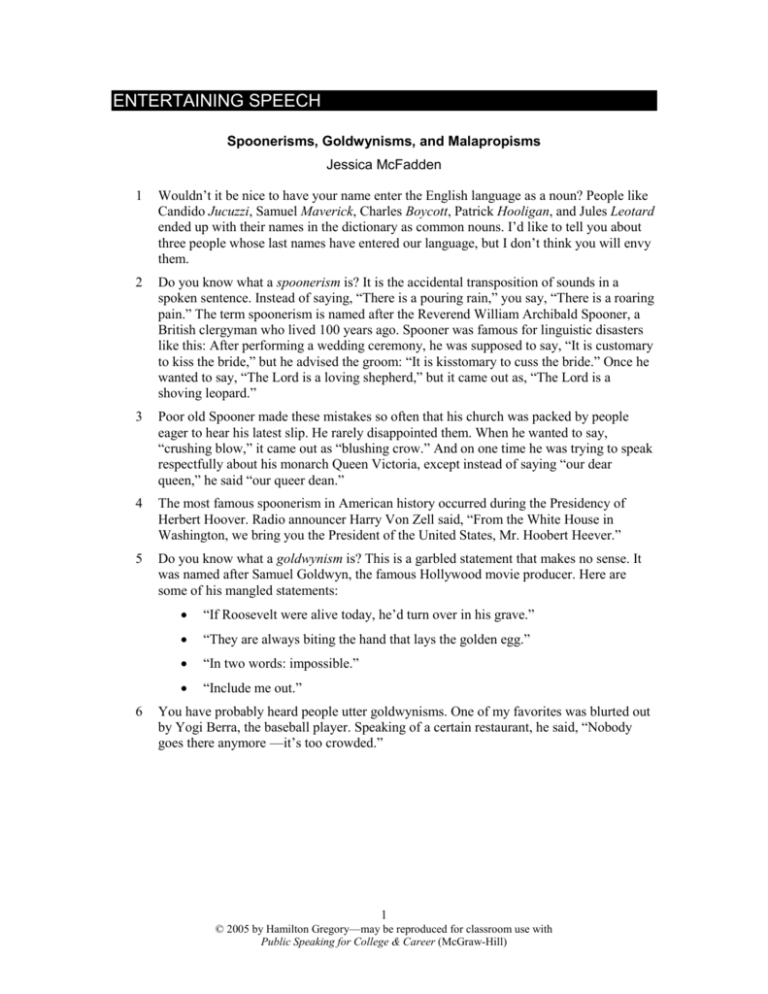
ENTERTAINING SPEECH Spoonerisms, Goldwynisms, and Malapropisms Jessica McFadden 1 Wouldn’t it be nice to have your name enter the English language as a noun? People like Candido Jucuzzi, Samuel Maverick, Charles Boycott, Patrick Hooligan, and Jules Leotard ended up with their names in the dictionary as common nouns. I’d like to tell you about three people whose last names have entered our language, but I don’t think you will envy them. 2 Do you know what a spoonerism is? It is the accidental transposition of sounds in a spoken sentence. Instead of saying, “There is a pouring rain,” you say, “There is a roaring pain.” The term spoonerism is named after the Reverend William Archibald Spooner, a British clergyman who lived 100 years ago. Spooner was famous for linguistic disasters like this: After performing a wedding ceremony, he was supposed to say, “It is customary to kiss the bride,” but he advised the groom: “It is kisstomary to cuss the bride.” Once he wanted to say, “The Lord is a loving shepherd,” but it came out as, “The Lord is a shoving leopard.” 3 Poor old Spooner made these mistakes so often that his church was packed by people eager to hear his latest slip. He rarely disappointed them. When he wanted to say, “crushing blow,” it came out as “blushing crow.” And on one time he was trying to speak respectfully about his monarch Queen Victoria, except instead of saying “our dear queen,” he said “our queer dean.” 4 The most famous spoonerism in American history occurred during the Presidency of Herbert Hoover. Radio announcer Harry Von Zell said, “From the White House in Washington, we bring you the President of the United States, Mr. Hoobert Heever.” 5 Do you know what a goldwynism is? This is a garbled statement that makes no sense. It was named after Samuel Goldwyn, the famous Hollywood movie producer. Here are some of his mangled statements: 6 “If Roosevelt were alive today, he’d turn over in his grave.” “They are always biting the hand that lays the golden egg.” “In two words: impossible.” “Include me out.” You have probably heard people utter goldwynisms. One of my favorites was blurted out by Yogi Berra, the baseball player. Speaking of a certain restaurant, he said, “Nobody goes there anymore —it’s too crowded.” 1 © 2005 by Hamilton Gregory—may be reproduced for classroom use with Public Speaking for College & Career (McGraw-Hill) 7 8 Finally, we come to a malapropism, which is the comical misuse of a word that sounds similar to another word but has a different meaning. If you say, “under the affluence of alcohol” instead of “under the influence,” you are guilty of a malapropism. It is named for Mrs. Malaprop, a character in a British play who said things like this: “as headstrong as an allegory on the banks of the Nile.” Here are some wonderful malapropisms I found in The Guinness Book of Words and Anguished English. “They severed his juggler vein.” “The agnostics in the church are very poor.” “The first thing they do when a baby is born is to cut its biblical cord.” “His mother got it all on videotape for prosperity.” “The murder defendant pleaded exterminating circumstances.” Rev. Spooner, Mr. Goldwyn, and Mrs. Malaprop have given us their names to enrich our language. It’s fun to have these names available when someone utters a Spoonerism like “Please sew me to another sheet” (instead of “Please show me to another seat”), when someone says a goldwynism like “We must take the bull by the teeth,” and when someone utters a malapropism such as “I don’t like swimming in that pond because it has too much of that green allergy.” 2 © 2005 by Hamilton Gregory—may be reproduced for classroom use with Public Speaking for College & Career (McGraw-Hill)
